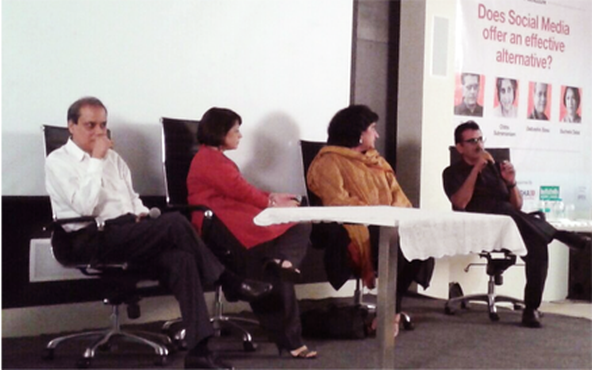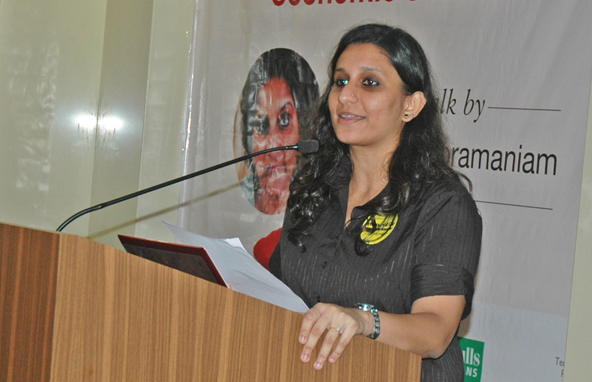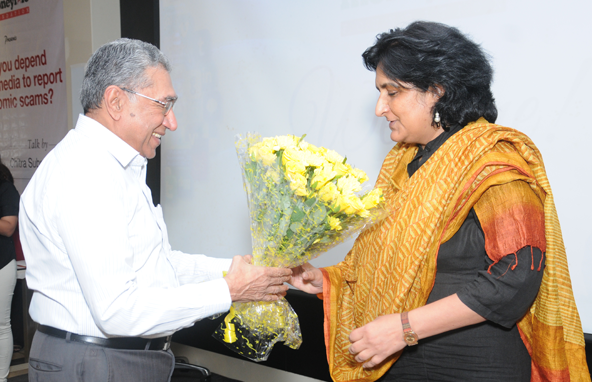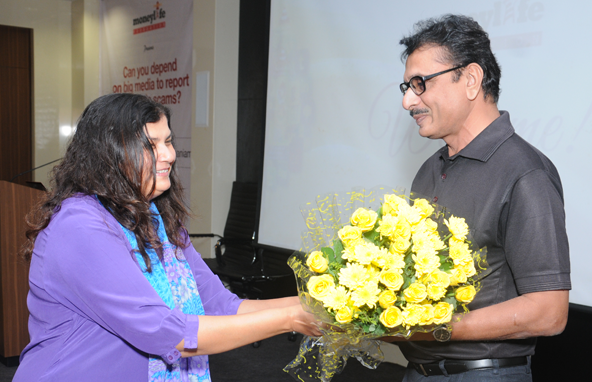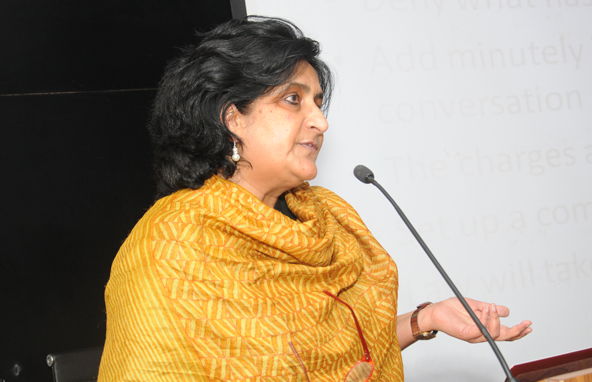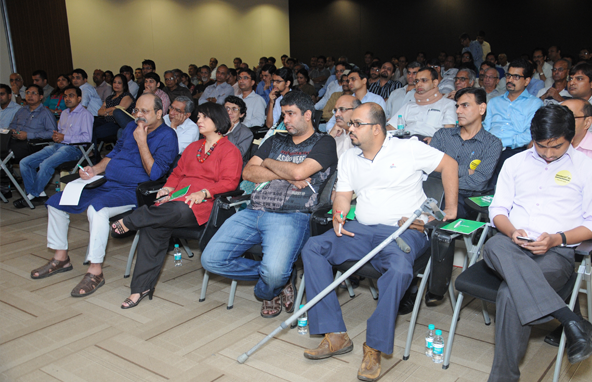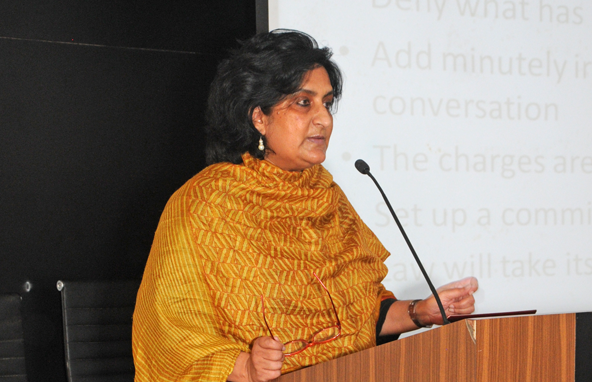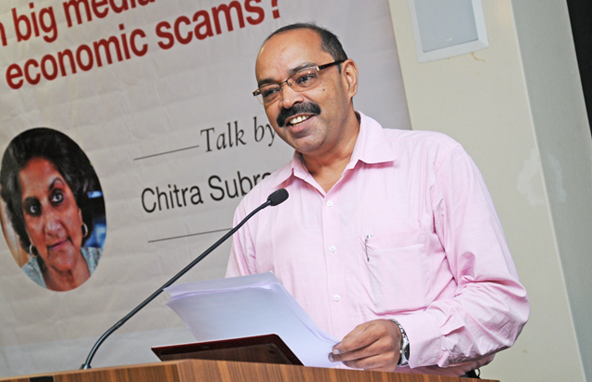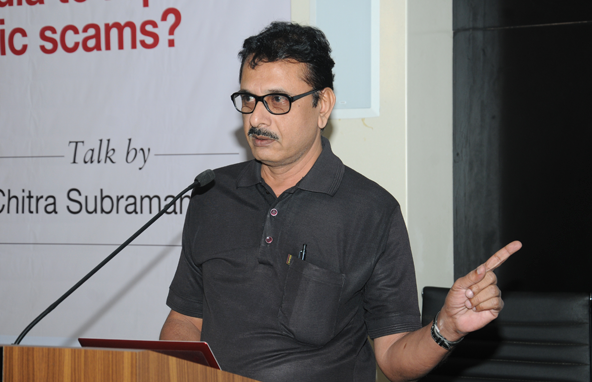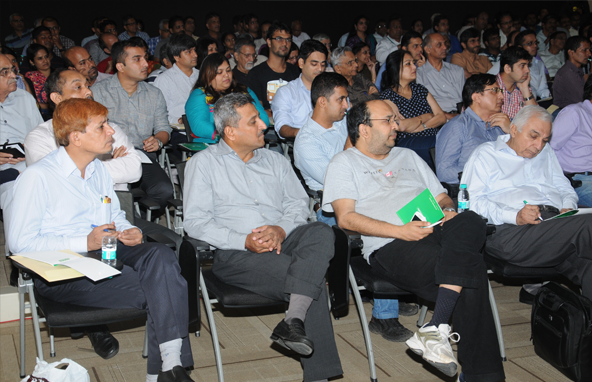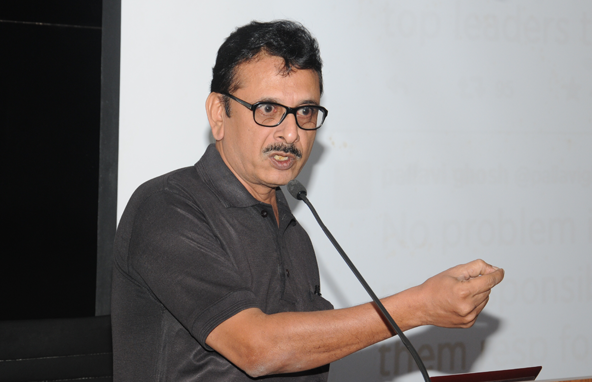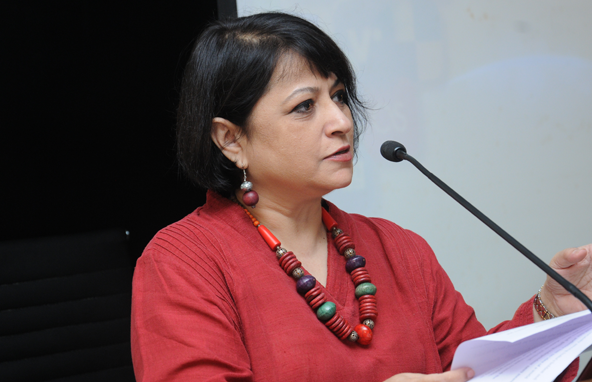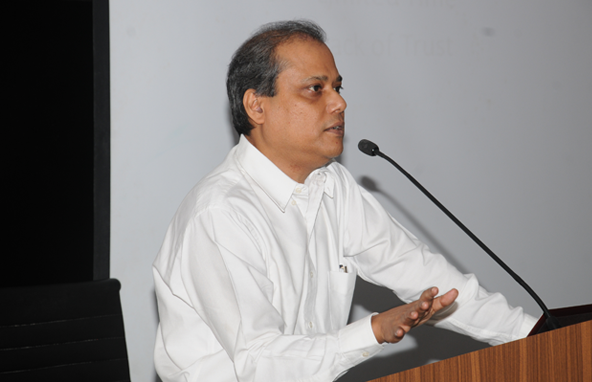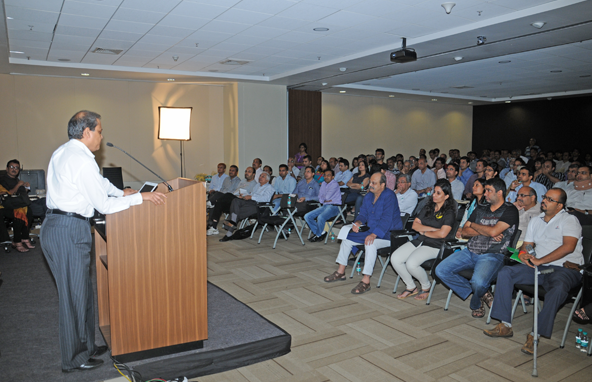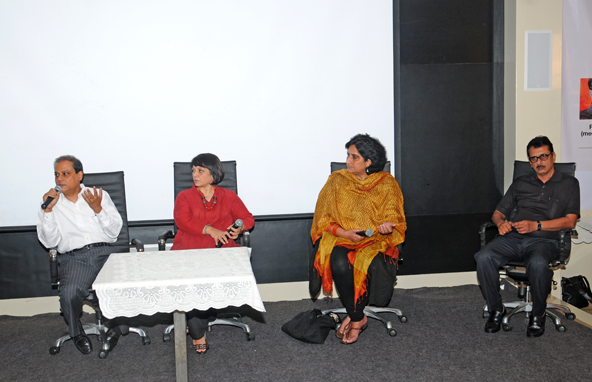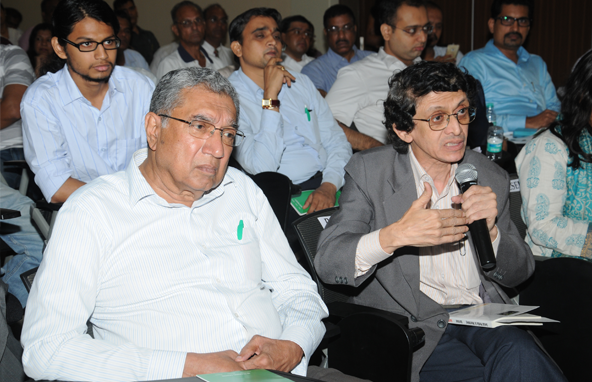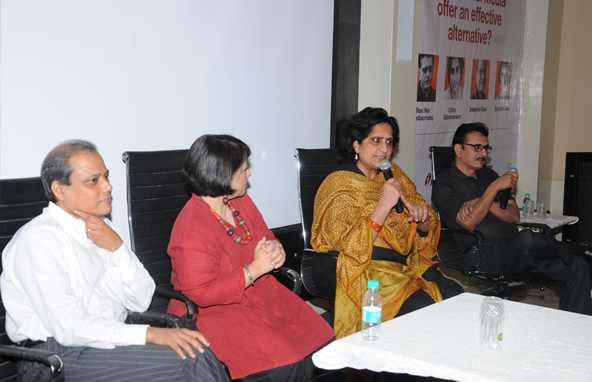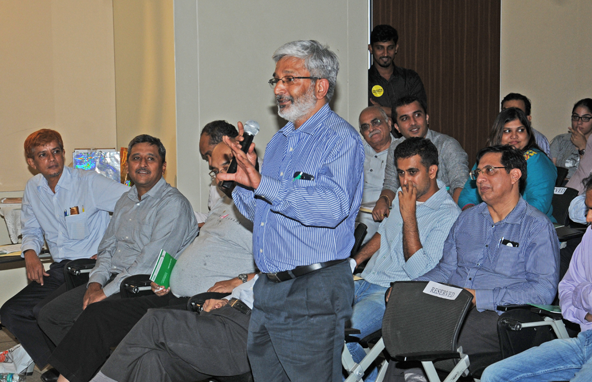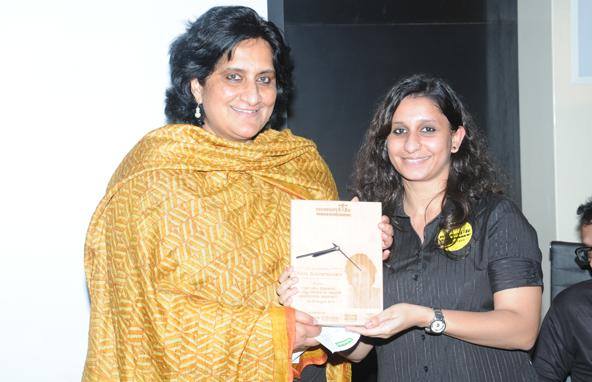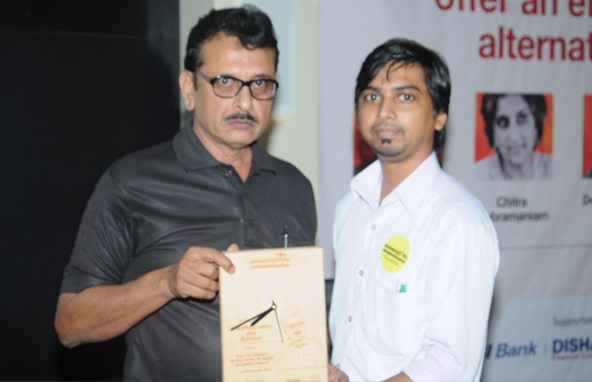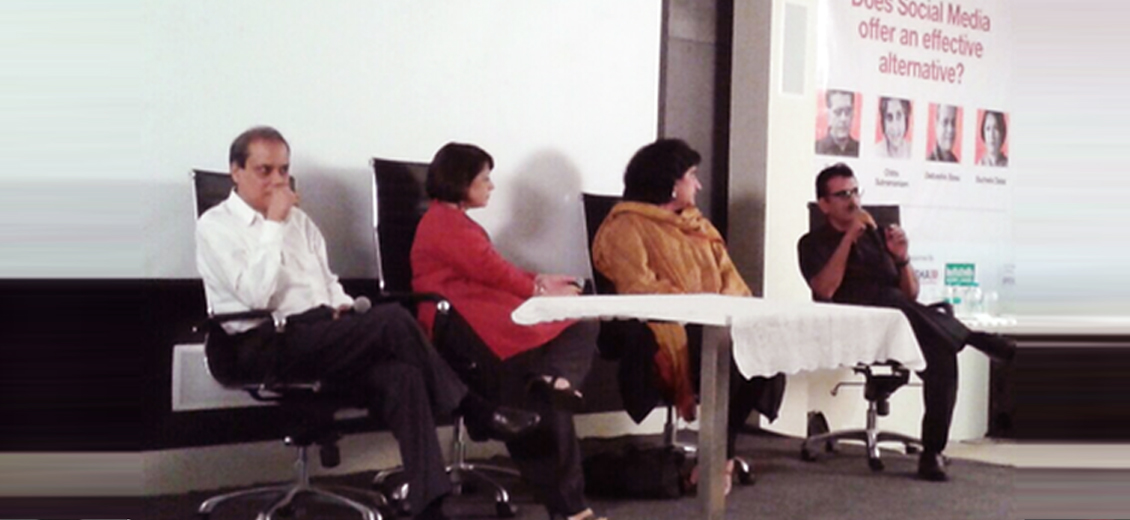
Moneylife Foundation brought together the three journalists, Chitra Subramaniam, Sucheta Dalal, Debashis Basu and also Ravinar, better known as @Mediacrooks on Twitter, to share their thoughts and for a discussion on the problems with mainstream media today and how social media can shape the future of news. We are all aware of issues around paid news in print, branded content on TV, influence peddling and trading favours that have become a fixture in our media landscape. And yet, can the audience disconnect from these news sources? In this context, can social media offer an alternative, and in what sense can it be used to do exactly what mainstream media is unable to, for a variety of reasons?
Chitra Subramaniam kicked off the discussion through the lens of how journalism is essentially a public service. She discussed the usual life cycle of a news report that deals with serious improprieties or scams by those in power; “from denial to irrelevant details, to more denials, the setting up of a committee and the usual refrain of the law taking its own course”.
She spoke of the problem with the model of how ‘access journalism’ works. “Where journalists draw their power, influence, careers and futures to their access to the rich and powerful, it is only natural that they would hesitate from reporting on the sources of their own success,” she said.
Ms Subramaniam, whose investigation into the Bofors scandal and dispatches from Geneva shook the Rajiv Gandhi government in the 1980s, also highlighted the corporatisation of journalism. In this new corporate journalism, bottomlines have become as important as headlines, and where the editor, who was traditionally shielded from the business side of journalism by unwritten codes of conduct, has now become an editor-CEO in himself or where it’s the case, herself, she added.
Where the focus is on breaking the news and nothing else, where the marketability of stories is equally important, the cornerstones of journalistic practice take a backseat. “Accountability in journalism takes hard work, stories have to be dropped when a lot of work may have gone into it, fact-checks and multiple sources are needed,” she said.
She recalled the Bofors scam. She spoke of how Bofors, as is the case today, was a story on how a Prime Minister, a Parliament, an executive and a judiciary let the country down. And the eventual consequences of the loss of faith in these institutions.
Talking about if Amitabh Bachchan was involved in the Bofors scam, Ms Subramaniam said, “Amitabh’s name was ‘planted’ in the scam. This was done because he was very close to the Gandhi family. This was planted by a senior journalist in the Indian media.”
A Clip from Peter Finch’s monologue from Hollywood cult classic, Network, set the tone for the panel discussion, as the actor prophetically implores his audience to “disconnect, turn off now and disconnect!.”
Ravi Nar (or @Mediacrooks) began by talking about how mainstream media controls the public discourse in the country. Instead of reporting, there is direction and misdirection, he said. He showed how there is a decided process on the creation of TV news. How the news is packaged to deliver both overt and subliminal cues to the audience, based on the editorial slant of the channel.
“Media is the first line of defense against corruption. Unfortunately, the same media, especially the TV does not provide fact and truth. All these TV news channel give you predetermined perception and opinion,” he added.
Sucheta Dalal picked up from where Ravi Nar left off, herself being very active on social media, her focus was on whether social media can work as an alternative to mainstream media.
Ms Dalal also detailed some of the issues raised by Ms Subramaniam, about how money and moneybags keep a stranglehold over media and policy making.
She then went on to discuss how the powers that be, go about gaming public discourse. The tactics used to coerce journalists and civil society’s voices, and the use of the state and judicial machinery to clamp down on “errant” journalists and writers. She ended her discussion by focussing on what an alternate model for media could look like, from funding to harnessing the immense potential of social media.
Debashis Basu then took the stage and focussed his decades of experience in financial journalism on the business of journalism itself. “How and why were almost all the major media companies making and sustaining massive operating losses?” he asked. With the proliferation of too many options and news outlets, there was little scope for a paying audience, and as a result, he said, there is a serious mismatch in the demand-supply scenario.
He then discussed how the American media landscape was changing and being reshaped by new media outlets like Buzzfeed and FirstLook Media, both funded by tech billionaires. He then spoke about the space for paid (by users) online news content, and how there was a crying need for an Indian business model of news delivery. He signalled towards the need for a round of creative destruction in the Indian news space, which would discard the likes of DNAs and NDTVs and clear the path for new emergent media possibilities.
In response to the comments made by the three panellists, Ms Subramaniam added her responses and ideas. She said, “Attitude of arrogance has brought joirnalism to this ‘subprime’ status and there is dire need to build institution of journalism”.
The panel then opened up for questions from the audience, in a Q&A session moderated by Ms Dalal. As was expected, the animus against the mainstream media flowed out and a lively discussion was followed by a closing vote of thanks by Ms Dalal to both Ms Subramaniam and Ravi Nar, and the audience for turning up in such numbers.


